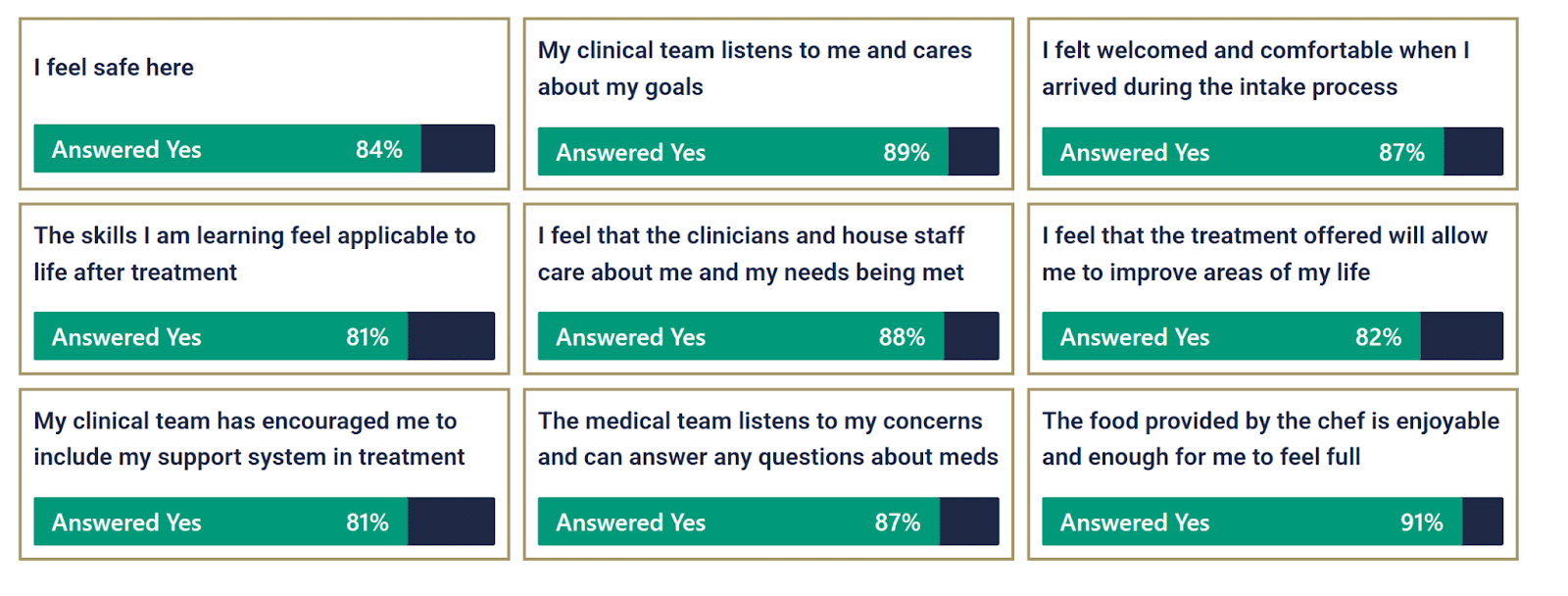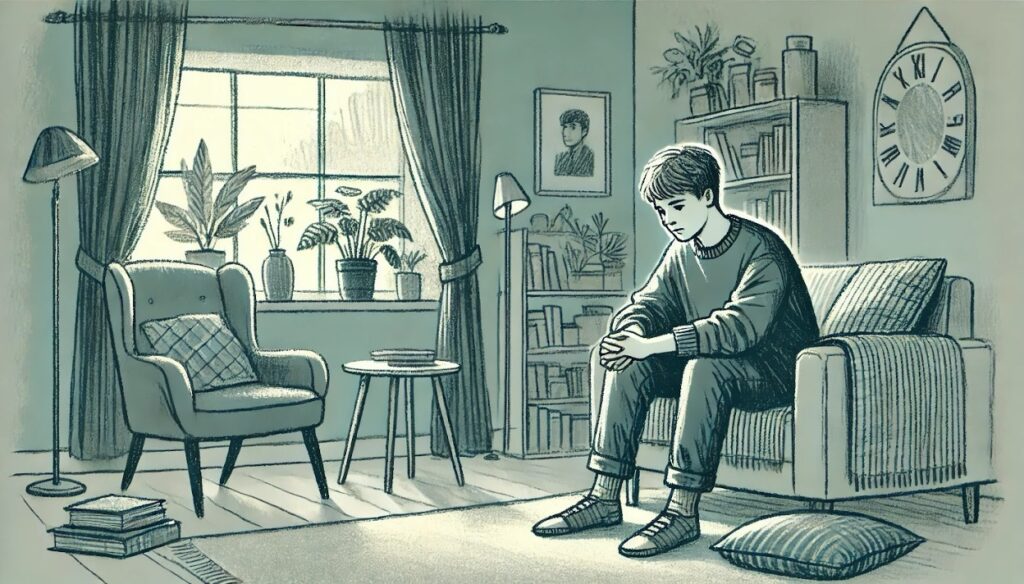Key Takeaways
- Anxiety is a persistent feeling of worry and fear that impacts daily activities.
- Common treatment options include therapy, medication, and alternative therapies.
- Costs of treatment can vary widely depending on the type of treatment plan and insurance coverage used.
- Support groups and financial assistance can significantly reduce the burden of treatment costs.
- Mission Prep Healthcare provides personalized teen anxiety treatment through multiple modalities, including residential care, outpatient programs, and telehealth options to meet varying needs.
Understanding Teen Anxiety in California
Teen anxiety is a persistent condition that can interfere with daily activities, affecting a teen’s performance at school, relationships, and overall well-being. The symptoms can vary from restlessness and fatigue to intense feelings of impending doom.
In California, teen anxiety is a prevalent issue, with millions of adolescents experiencing symptoms that interfere with their daily lives. The pressures of school, peers, social media, and family dynamics can exacerbate these feelings – leading to a need for professional intervention.
Importance of Timely Treatment
When left untreated, anxiety can lead to more severe mental health issues, including depression and paranoia. Early treatment can equip teens with coping mechanisms that help them manage anxiety throughout their lives. It empowers them to face challenges head-on, building resilience and confidence.
Mission Prep Healthcare specializes in mental health treatment for teens aged 12-17, offering residential and outpatient programs for anxiety, depression, trauma, and mood disorders. Our therapies include CBT, DBT, EMDR, and TMS, tailored to each adolescent’s needs.
With a structured, supportive environment, we integrate academic support and family involvement to promote lasting recovery. Our goal is to help teens build resilience and regain confidence in their future.
Common Treatment Options for Teen Anxiety
Therapy Choices

Therapy is often the first line of treatment for teen anxiety.
Cognitive Behavioral Therapy (CBT) is particularly effective, helping teens identify and change negative thought patterns. Other therapeutic approaches include Dialectical Behavior Therapy (DBT) and Exposure Therapy, each offering unique strategies to manage anxiety.
Find a therapist who specializes in adolescent anxiety to ensure that the treatment is effective.
Medication
For some teens, medications such as selective serotonin reuptake inhibitors (SSRIs) may be prescribed together with therapy to manage anxiety symptoms effectively. These medications work by balancing chemicals in the brain that affect mood and emotions.
While medications can be effective, they come with potential side effects and should be closely monitored by a healthcare professional.
Residential Treatment Programs
For teens with severe anxiety that impacts their daily functioning, residential treatment programs offer a structured and supportive environment. These programs provide intensive therapy, educational support, and recreational activities designed to promote healing and personal growth.
Residential programs can be particularly beneficial for teens who have not responded to outpatient treatments or require a higher level of care. The immersive nature of these programs allows teens to focus entirely on their recovery without the distractions of everyday life.
Factors Influencing Treatment Costs
Several factors can influence the cost of teen anxiety treatment. The location of the treatment facility can play a significant role, with urban centers typically having higher costs than rural areas. Additionally, the level of expertise and qualifications of the healthcare providers can impact pricing.
The type of therapy or treatment modality chosen also affects costs. For example, specialized therapies or programs that include additional services such as family therapy or educational support may come with higher fees.
Consider these factors when evaluating treatment options to ensure you find a solution that fits your budget while meeting your teen’s needs.
Residential vs. Outpatient Costs
Residential treatment programs are usually pricier than outpatient options due to the comprehensive nature of care provided. These programs include room and board, 24/7 supervision, and a range of therapeutic services.
Outpatient programs, on the other hand, offer flexibility and allow teens to receive treatment while continuing their daily activities. These programs are also more affordable because they do not include accommodation or around-the-clock care.
However, the frequency and duration of therapy sessions can affect the overall cost.
Benefits of Treating Teen Anxiety
Emotional Well-Being Improvements
Anxiety can cause overwhelming feelings of fear and worry, which can be exhausting and lead to a constant state of stress. Treatment helps teens learn how to manage these emotions and face anxiety head-on. This results in a more stable mood and a decrease in feelings of hopelessness or panic.
Also, as teens begin to understand and control their anxiety, their self-esteem often improves. They start to feel more confident in their ability to handle challenges, leading to a more positive outlook on life.
Academic Performance Boost
Anxiety makes it difficult for teens to concentrate on schoolwork, leading to poor grades and a lack of motivation. However, with effective treatment, teens can learn strategies to manage their anxiety and improve their focus.

For example, CBT can help students develop better study habits and time management skills.
By addressing the root causes of their anxiety, teens can begin to see improvements in their academic performance. They may find it easier to concentrate during class, complete assignments on time, and participate in discussions, all of which contribute to better grades and a more fulfilling school experience.
Social Relationship Enhancements
Anxiety often affects a teen’s ability to form and maintain social relationships. They may avoid social situations due to fear of judgment or embarrassment, leading to isolation and loneliness. Through treatment, teens can overcome these fears and develop healthier social interactions.
Therapies like social skills training teach teens how to communicate effectively, read social cues, and build meaningful connections with others. As a result, teens can enjoy more fulfilling friendships and feel more connected to their peers.
Insurance Coverage for Anxiety Treatment
In-Network vs. Out-of-Network
When seeking treatment, determine whether a mental healthcare provider is in-network or out-of-network.
In-network providers have agreements with your insurance company to offer services at reduced rates, which can significantly lower out-of-pocket expenses. Out-of-network providers may still be covered, but the costs are typically higher, and you might need to pay upfront and then seek reimbursement.
Therefore, always check with your insurance company to confirm the network status of a provider before starting treatment. This can prevent unexpected costs and ensure you receive the maximum benefits available under your plan.
Coverage Limitations
Insurance plans often have limitations on coverage for mental health treatment. These can include caps on the number of therapy sessions per year or restrictions on the types of treatments covered. For example, some plans may not cover alternative therapies like acupuncture or yoga, even though they can be beneficial for managing anxiety.
Understand these limitations and work with your provider to develop a treatment plan that fits within your coverage. If your plan has limitations that don’t meet your needs, consider discussing options with your insurance company or exploring supplemental insurance to fill the gaps.
Financial Assistance and Payment Options
Flexible Payment Plans
Many treatment providers offer flexible payment plans that allow families to spread the cost of treatment over time. This can be particularly helpful for managing larger expenses, such as residential programs or intensive therapy sessions. Discussing payment options with your provider can lead to arrangements that fit your budget.
Sliding Scale Fees
Some therapists and treatment centers offer sliding scale fees based on income.
This means the cost of therapy is adjusted according to your financial situation, making it more accessible and affordable for families with limited resources. It’s worth inquiring about this option when seeking a provider.
Financial Aid Resources
Various organizations and programs offer financial aid to support mental health treatment. These can include grants, scholarships, and assistance programs specifically designed for adolescents with mental health needs.
Researching and applying for these resources can provide additional support in covering treatment costs.
Practical Steps for Families
Selecting the Right Provider
To select the right mental healthcare provider for your teen, take your time to research the following criteria:
1. Reputation of Provider
The reputation of a treatment center can be a strong indicator of the quality of care provided. Centers with positive reputations often have experienced staff, effective treatment programs, and a history of successful outcomes.

Researching the center’s history and asking for references can provide reassurance about its credibility.
2. Success Rates
While no center can guarantee specific outcomes, understanding their track record can give you an idea of their effectiveness. Inquire about their success rates for treating teen anxiety and any available data or studies that support their claims.

At Mission Prep Healthcare, we surveyed patients in 2024 and received satisfaction scores of 81% or higher across multiple metrics – it’s clear proof of our clients’ strong satisfaction with our mental health programs.
3. Location and Accessibility
Location and accessibility are practical considerations when selecting a treatment center. Ideally, the center should be conveniently located to minimize travel time and stress. However, don’t compromise on quality for the sake of proximity. Sometimes, traveling a bit further can lead to better treatment outcomes.
Consult with Insurance Providers
Before starting treatment, consult with your insurance provider to verify coverage and understand your benefits. This will help you avoid unexpected costs and ensure you maximize your insurance benefits. Ask about coverage for specific treatments, in-network providers, and any pre-authorization requirements.
Additionally, keep detailed records of all communications with your insurance company. This documentation can be invaluable if you encounter any issues with claims or coverage down the line.
Mission Prep: Your Partner in California Teen Anxiety Treatment

At Mission Prep, we understand the complexity of teen anxiety treatment in California. While options vary widely in cost and approach, we work with most major insurance carriers including Aetna, Anthem, and Blue Cross Blue Shield to make quality care accessible.
What truly distinguishes our anxiety treatment is our sustainable approach. Rather than simply managing symptoms, we empower teens through our “Vote & Voice” methodology, giving them agency in their healing journey while providing the structure needed to develop lasting coping skills.

Our home-like environments in California and Virginia create a sense of belonging that’s necessary for comprehensive anxiety recovery.
By treating the entire family system and offering multiple care levels from residential to outpatient and telehealth, we ensure continuity of care that adapts to your teen’s changing needs.
Don’t let insurance complexities or financial concerns prevent your teen from receiving the anxiety treatment they deserve. Contact us today to verify your insurance and start your family’s journey toward sustainable healing.
Frequently Asked Questions (FAQ)
What are common symptoms of teen anxiety?
Common symptoms of anxiety are excessive worry about everyday situations, difficulty concentrating or mind going blank, restlessness or feeling on edge, and avoidance of social situations. Note that these symptoms can vary in intensity and may not all be present.
How long does treatment typically last?
The duration of treatment for teen anxiety varies depending on the individual’s needs and the severity of their symptoms. Generally, therapy can last from a few months to a year or more. Some teens may benefit from ongoing support to maintain progress and prevent relapse.
Does insurance always cover therapy?
Insurance coverage for therapy can vary based on your plan and provider. While many insurance plans offer mental health benefits, there may be limitations on the number of sessions covered or the types of therapy included. Review your insurance policy and discuss coverage options with your provider.
Are alternative therapies effective?
Alternative therapies, such as mindfulness, yoga, and acupuncture, can be effective complements to traditional treatment methods. These therapies focus on holistic approaches to managing anxiety, promoting relaxation, and enhancing overall well-being.
What makes Mission Prep’s approach to anxiety treatment different?
At Mission Prep Healthcare, our approach is unique. We give teens a voice in their treatment while providing selective exposure to stressors, allowing them to develop coping skills in a supported environment.





















